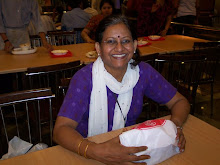In a recent project on computerisation in a government ministry, I had the chance to see the functioning of the various officials, be it senior IAS Officers/ Bureacrats or that of the officers at the junior levels, there is immense resistence that one can see in the day to day operations.
Take for example, if we were to deal with keeping the work place congenial and pleasant, it requires that the seniors (in designation, but could be junior in age) must deal people with respect. But in the government, what one sees is that people have become insolent and impertinent to seniors, due to the scenario of being insulted, not recognized for the hard work they put in.
Given that the Ministry is planning a computerisation programme that will span next five years, and the programme will undergo many changes, both technically and as Government Process Re-engineering, New ways of knowledge sharing and communications are to be introduced, people to be trained, and leadership celebrated.
These, and other change management strategies are being worked out and I am delighted to be an important strategic consultant for this! See more posts on Change management and capacity building from me here on.
-



